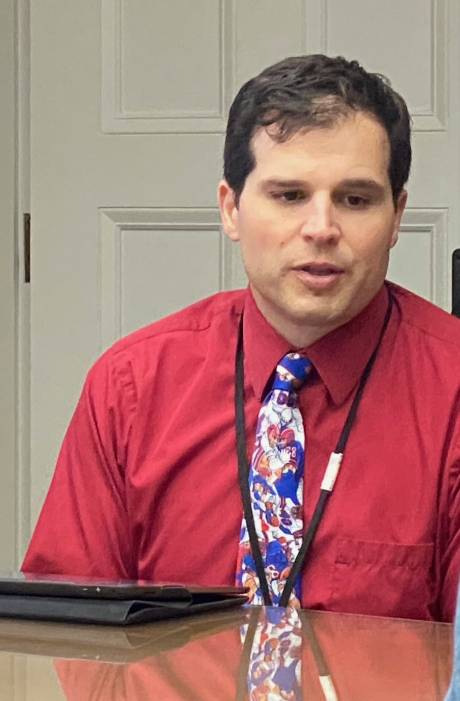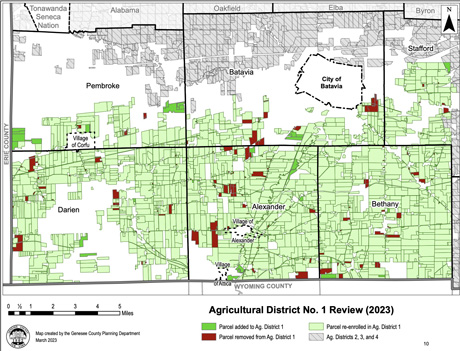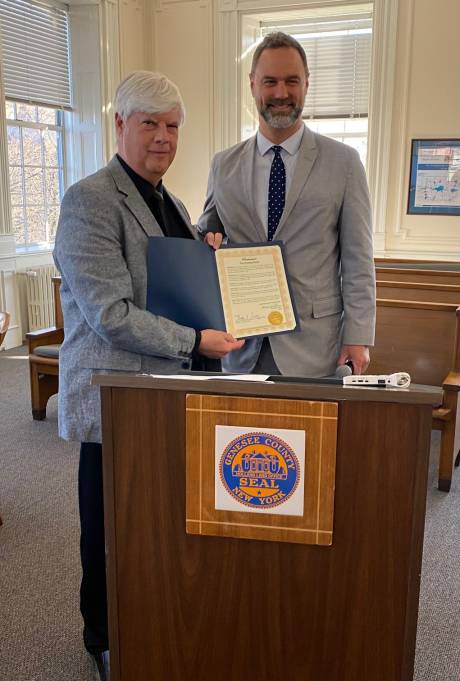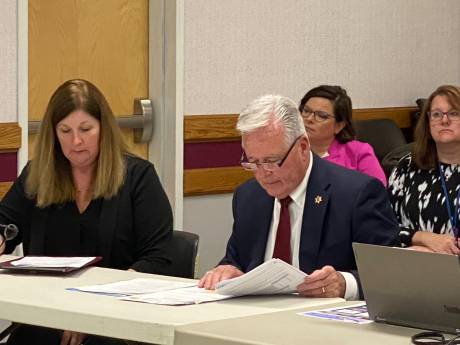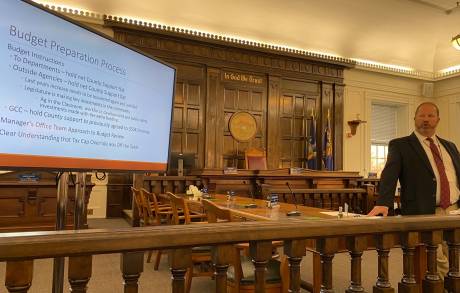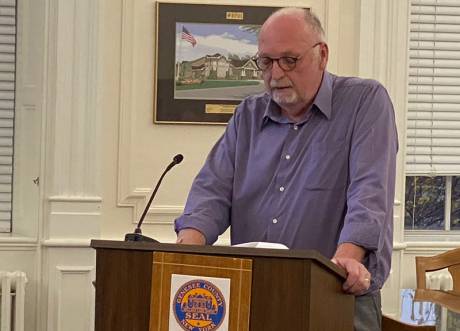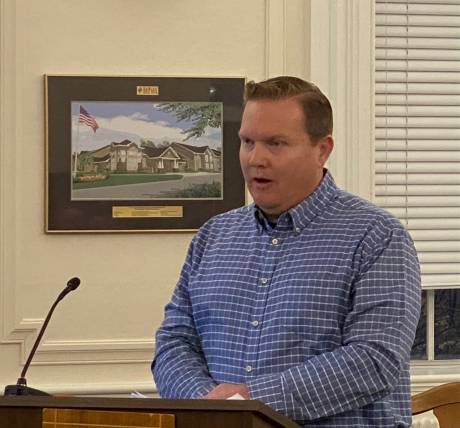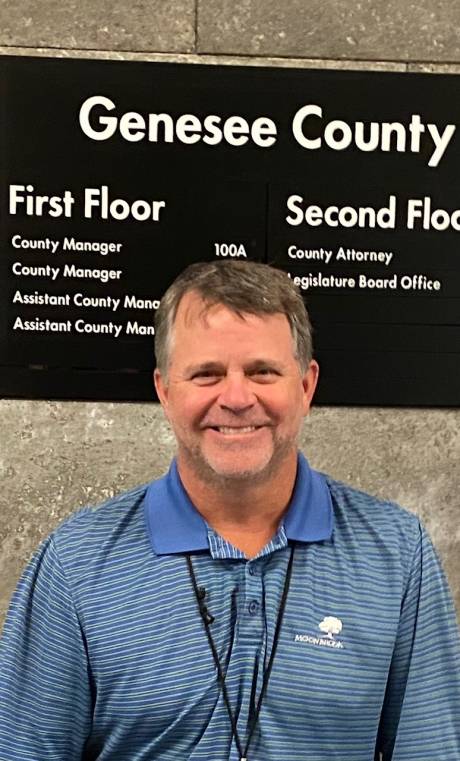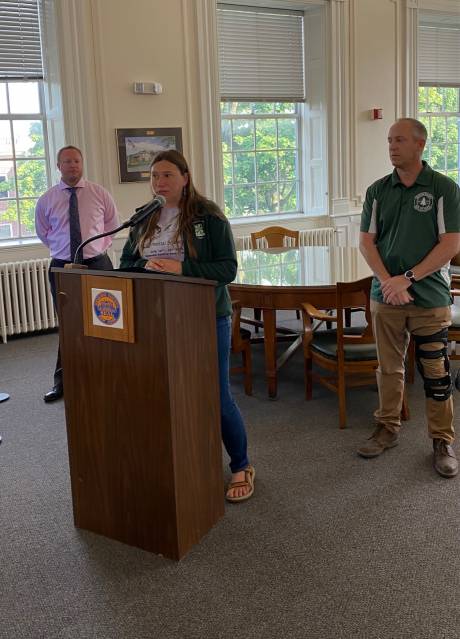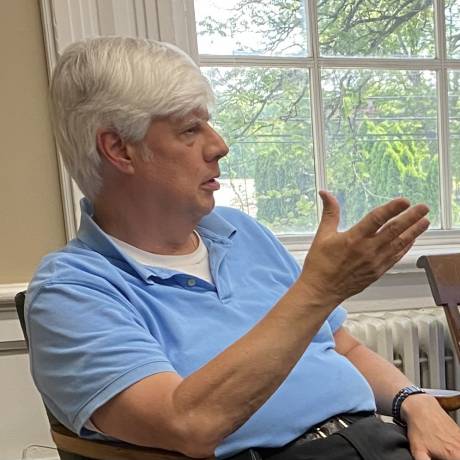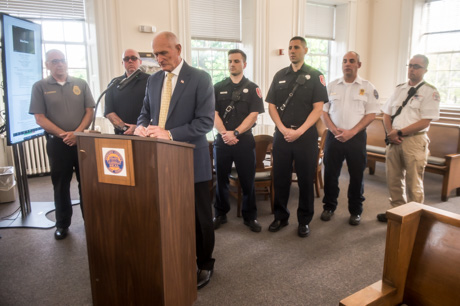Legislators wax nostalgic about the fair during annual volunteer gig at Chuck Wagon

Photo by Steve Ognibene.
While waiting for the Genesee County Fair Parade to start on Tuesday evening, Genesee County Legislator Gordon Dibble recalled what he enjoyed as a kid while visiting the summer fair.
“The rides, ice cream cones, it’s really a great place to go,” he said, adding why he thinks it’s an important event for the community. “Because it has its roots in the community, in farming, and that’s what we’re about. You know, the animals and all the shows, and it has something for everybody, with a demolition derby … the numbers go up every year here in recent history. So somebody’s doing something right.”
After the parade, Dibble joined his fellow legislators at the fair’s staple eatery, the Chuck Wagon, slinging burgers, calling out orders, and cashing out hungry customers. The group has done this for several years in a row now as a way to give back to the yearly event, right after walking in the parade, tucked between the newly crowned queen and some well-groomed farm animals.
Legislature Chair Shelley Stein was in charge of the fry station as she reminisced decades ago when she was growing up nearby.
“Probably when I came with my boyfriend back, you know, 40-some years ago to the Genesee County Fair. I grew up around fairs. My fair was Seneca County. So we always showed holsteins and were part of 4-H clubs,” she said, answering what most comes to mind when she thinks about those fairs. “The fact that we would go well prepared, and that our animals had good care at home, and they had a good time with us so that they led really well.
"I'm one of six. So we had to compete in an amongst us before we could even go to the fair, and compete against others,” Stein said. “So learning responsibility about caring for our animals and being responsible for yourself, those are really good character builders through 4-H. So those are my memories.”
And why do you think the fair is important for the community?
“This is a piece of our culture here. We are so rooted in our agricultural side of our county, and we really treasure and steward our land, our farmers, the career opportunities that that brings to our community,” Stein said. “You know, the Farm Bureau is important here, our Ag Society, the volunteers that work here tirelessly, all year long, everybody picks up their little piece. And this fair week offers opportunity to our 4-Hers, it is the culmination of their year here at the fair, and the fun that they have, but really learning about responsibility.”
Why does Genesee County’s fair seem to just keep growing when others have closed?
Stein’s answer is quick and to the point: The county’s Agricultural Society volunteers.
“That’s our secret sauce,” she said. “These folks don’t just volunteer for that for one week out of the year. There are horse shows here, there are beef shows here, there are car shows here. They use this facility and this resource to really help to put money back into our buildings the the grounds itself,” she said. “They’ve tapped into soil and water so that we could improve the drainage here, and we could put stacking pads here for the manure. They’re business people that are really interested in having this fair continue past them. It’s not going to fail on their watch. And they’re really incredible volunteers.”
Legislator Brooks Hawley agreed with that sentiment — it’s “the people behind the scenes” that keeps the place afloat, he said. He likes that sense of “everybody coming together,” and it’s not just the farming population but people from throughout the region who appreciate what Genesee County has to offer, he said.
“I’m also part of Cornell Cooperative Extension, which is a huge part of putting on this fair and helping it out with everything,” he said about the agency’s role in overseeing the 4-H program. “And being part of that committee, I learned everything behind the scenes and see how important this is. And it’s a great thing to see. I’m glad it’s very successful.”
Legislator Gregg Torrey, who grew up on a small dairy farm, remembers the fair as something his family always went to. His dad, having known everyone in the industry, could “always find a place for us to volunteer.”
“So that was always fun,” Torrey said. “My mom was the county Republican chairman, so we always volunteered to work the Republican booth. It’s always fun to come out and go on the rides as a kid and see everybody from the farming industry, cousins and neighbors and everybody you didn’t see here. So everybody seems to come out and have a good time.”
Visiting the fair, with its plethora of animal exhibits, gives Legislator Gary Maha more appreciation for farmers “and what they do with the food they grow for us,” he said. He did note a more recent trend of farmland being used for solar panels, and while “I understand the farmers’ point of view, you can’t tell them what to do with their land … personally, I hate to see all the solar farms going up on farmland.”
As for the fair itself, it’s more for the kids, he said.
“You know, getting the young kids interested in agriculture and farming,” he said. “A lot of these farmers have a lot of young kids, and they enjoyed this week; they spend the entire week up here.”

Photo by Howard Owens.

Photo by Howard Owens.
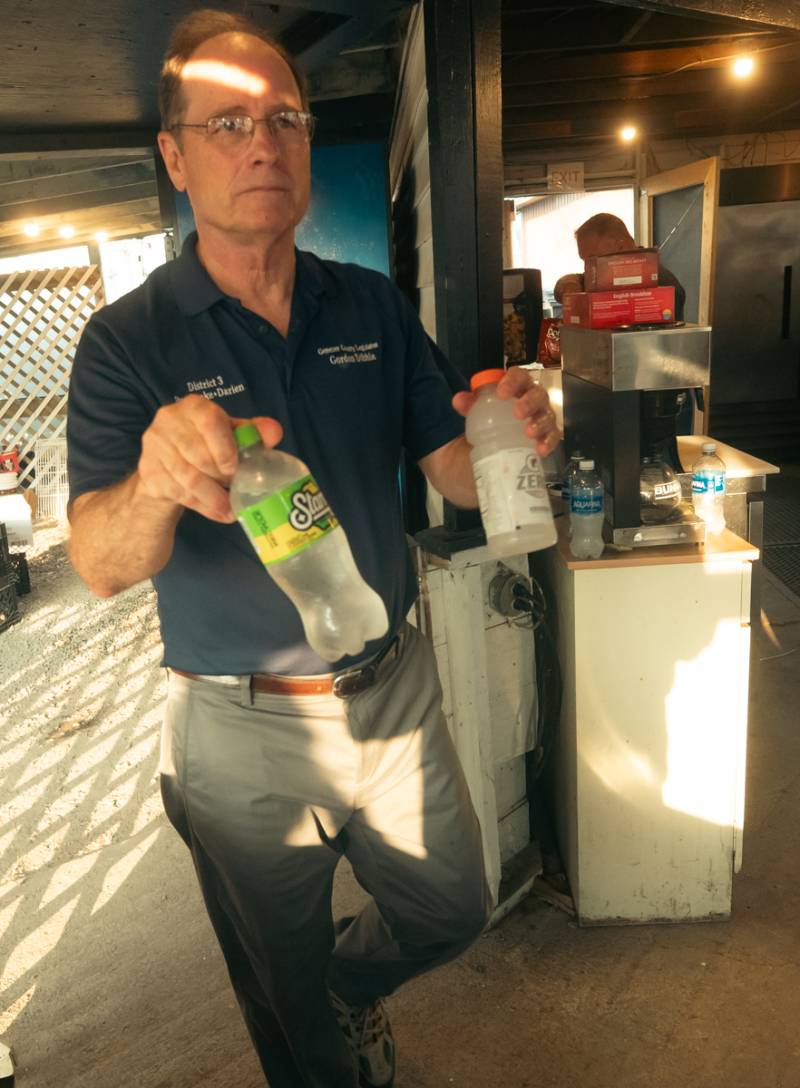
Photo by Howard Owens

Photo by Howard Owens.


